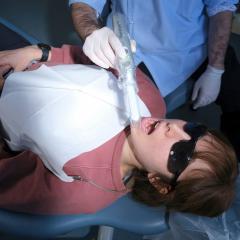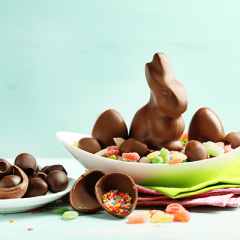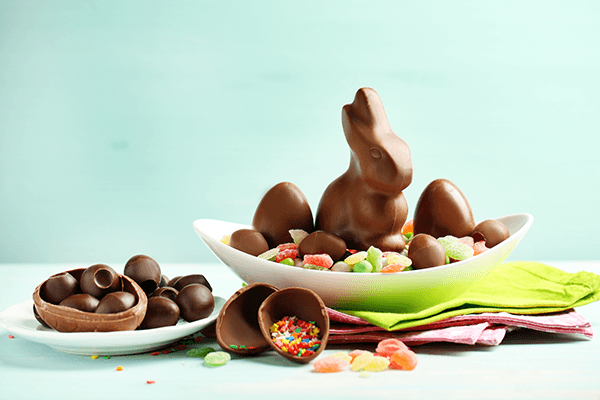 Exchanging chocolate eggs and bunnies is a much-loved tradition of the Easter holiday.
Exchanging chocolate eggs and bunnies is a much-loved tradition of the Easter holiday.
Whether you are a chocolate enthusiast or non-sweet tooth alike, there is a high likelihood that you’ll indulge one, two (or many more) chocolates over the weekend.
But what does this mean for our teeth?
Dr Arosha Weerakoon from UQ’s School of Dentistry shares how an increase in sugar might impact oral health, and what we can do to maintain good oral hygiene.
How does sugar impact your teeth?
Dr Weerakoon says it’s not so much the sugar content, but more the frequency of sugar that could impact oral health over Easter.
“Frequent sugar consumption creates an acidic environment in the mouth and feeds the ‘bad’ bacteria that thrives on sugar,” Dr Weerakoon said.
“Bad bacteria such as strep. mutans, will consume the sugar and create an acidic biproduct that sits against your teeth - I refer to this as bacteria poo.”
“Because our body is constantly trying to balance things out, the mineral in our teeth dissolves to bind to the acids, causing the tooth to soften and this is how we get holes or cavities.”
Dr Weerakoon said the other issue with an increase in sugar consumption is that our brains become accustomed to dopamine hits.
“This means that even after the last easter egg wrapper has been discarded, our brains will continue to crave sugar, and this is a difficult habit to kick long after our Easter indulgence.”
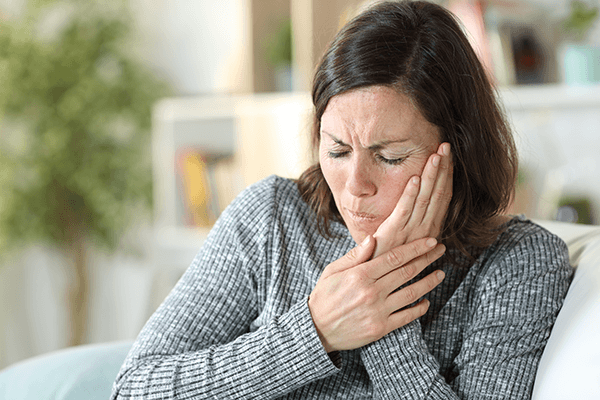
What are the signs of dental decay from sugar?
Typically, people complain of a toothache when consuming sweet things.
Dr Weerakoon explains this usually means the dentine, the second softer layer of the tooth under the enamel, is exposed.
“In addition to holes and cavities, I see more issues between teeth where people aren’t flossing, with holes that cover the sides of teeth and in the chewing surfaces,” Dr Weerakoon said.
“Holes in the surfaces of molars seem to happen because sugar gets caught in the cracks and crevices and toothbrush bristles are too thick to brush it away.
“This means the sugar particles stick to the tooth, feed the bacteria- and bacteria poo strikes again!”
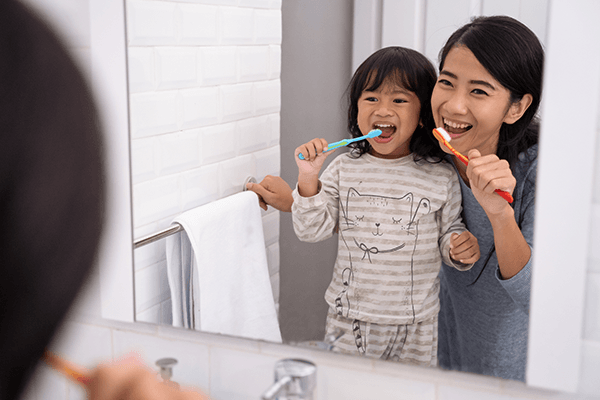
How to give your teeth extra care over Easter
Dr Weerakoon admits Easter is even a challenging time for her, as chocolate is her kryptonite. Thankfully, she has some simple tips to follow to maintain good oral hygiene over the holiday including:
- Always brush your teeth with an electric toothbrush, for at least 2 minutes
- Always brush your teeth before going to bed, and at least one other time during the day. Bonus points if you can fit a third brushing session in the middle of the day after lunch.
- Use a toothpaste that contains fluoride, and spit- don't rinse.
- Clean between your teeth once per day, by flossing or using Christmas tree brushes.
- Make brushing teeth fun for children by playing a song or doing it as a family.
As for whether you should clean your teeth more regularly over Easter, Dr Weerakoon says this isn’t a bad idea.
“Remember to give yourself about 10 to 15 minutes after consuming sugar or chocolate before brushing your teeth,” she said.
“Sugar and chocolate create a temporary drop in the pH in your mouth because of the acid that softens the tooth surface. Drink plenty of water and take a break from the sugar”
“Brushing too soon after consuming sweets can remove some of the softened tooth surface away.”
The message certainly isn’t to avoid chocolate over the break but instead be mindful of what you can do to reduce oral health impacts. And remember, it’s about quality of chocolate, not the quantity.

